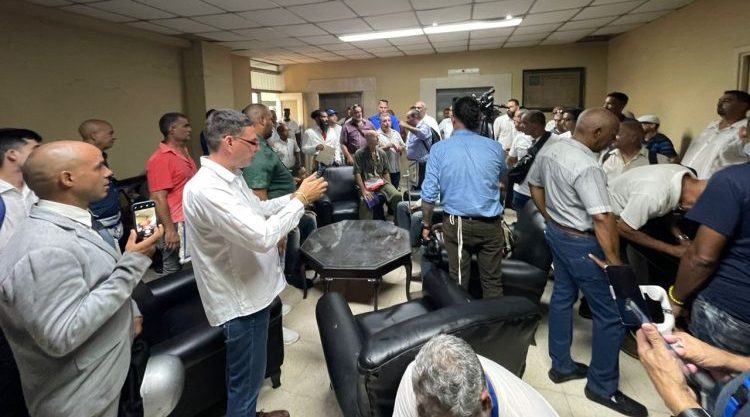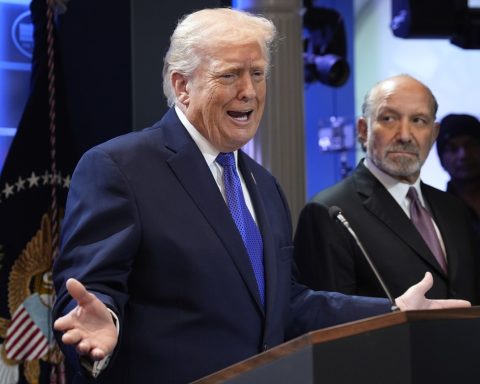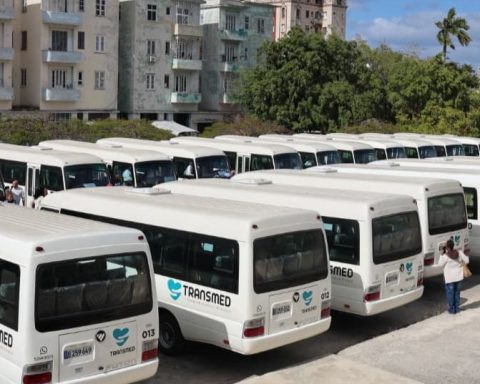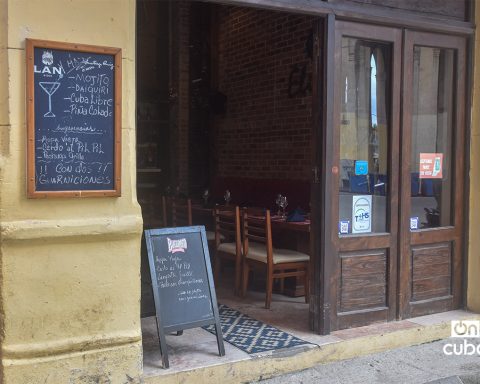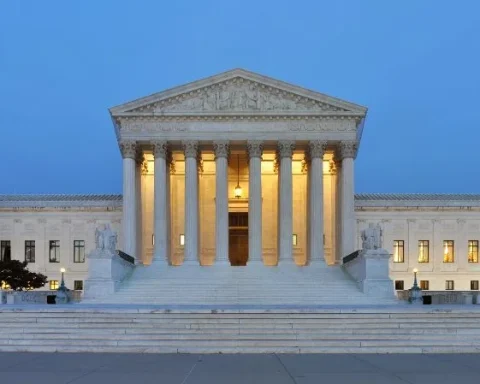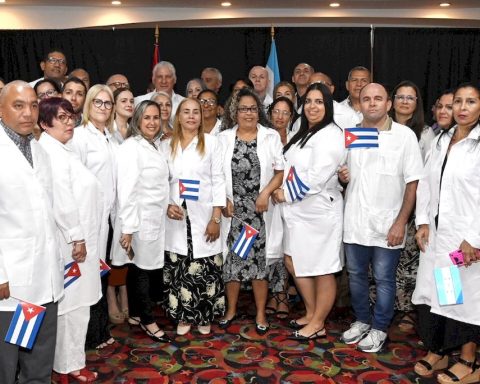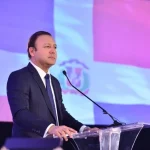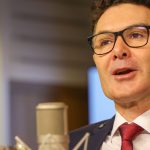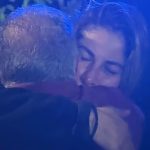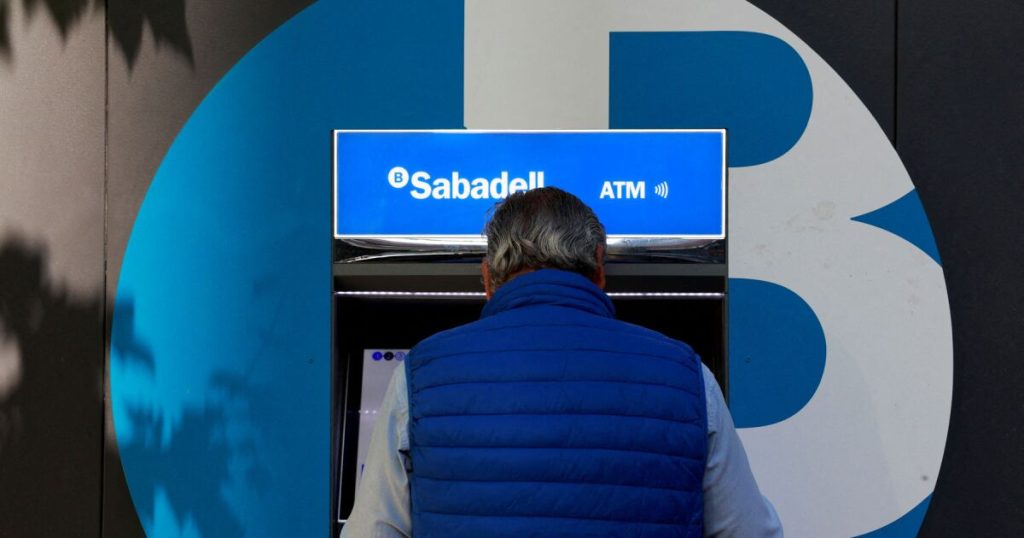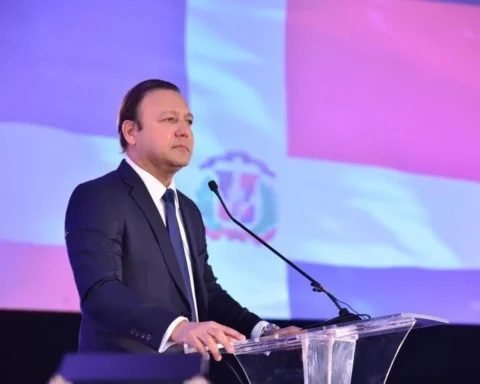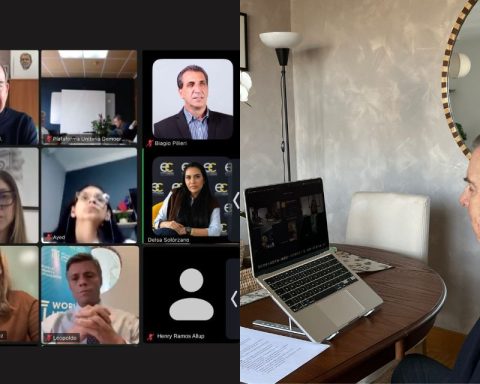HAVANA, Cuba.- This Tuesday, July 23, around two hundred Masons They concentrated at the building of the Grand Lodge of Cuba to demand that Grand Master Mario Alberto Urquía Carreño step down from his post, as well as an end to government interference, through the Ministry of Justice (MINJUS), in its internal affairs.
The event is unprecedented in the country’s history and constitutes one of the greatest displays of rebellion against the regime’s impositions on Freemasonry on the Island.
Two days before the meeting, Urquía Carreño issued a statement stating that the purpose of the call was to “directly attack government institutions” and that these were “actions that pursue violence” and “bring with them the commission of crimes punishable by state laws.”
However, those present They explained that it was not a coup d’état, but that Urquía Carreño occupied the position by imposition of the MINJUS since he had previously been expelled from the Order.
“We are here because we have exhausted all legal, Masonic and secular avenues, without receiving a response or being heard. We are here representing the feelings of thousands of Masons throughout the country,” he claimed Gerardo Cepero.
The Masons in attendance represented more than fifty (out of around 300) lodges in the country, most of them from Havana.
Sergio Vidal Águila declared to CubaNet that it was the “most legitimate attempt, in the hands of the lodges’ demonstration, to deny recognition of the expelled usurper, bandit and traitor, for the purposes of Freemasonry, through the adoption of agreements for this purpose, and an act of profound legal value.”
For his part, Yuneiky Carracedo referred who were “defending 165 years of history that Mario Alberto Urquía Carreño is throwing overboard without any kind of complex and ignoring the only treasure that Cuban Freemasonry has —one of the most humble in the world—, which is honor and morality.”
Another mason, Edisney Rojas Velázquez, express who were “demanding a just right for all Cuban Masons for what has been happening for seven months.”
“We are the organic institution of morality and we would be hypocrites if we did not do what comes to our hearts and minds. As men of honor, we come to claim what is a matter of honor. The Registry of Associations (of the MINJUS) has gone over all the Cuban Master Masons and has decided to put in that chair a person that nobody wants. We are Master Masons who are tired, who want the legitimacy of the Grand Lodge of Cuba to be reestablished before the Grand Lodges of the world that today, unfortunately, are in the crosshairs and with the possibility of falling into the sad hole of Masonic irregularity,” he added.
Some of the attendees also stated that most of the lodges in the country do not recognize Mario Urquía as their Grand Master. At all times, they stressed the peaceful nature of the gathering, as well as denouncing the interference of both the MINJUS and State Security in their internal affairs.
Just one day before the demonstration, Gerardo Cepero was summoned by Lieutenant Colonel Kenia, of State Security, who threatened him for the action they would take.
Why the Masons do not recognize Mario Urquía
Mario Alberto Urquía Carreño was elected as Grand Master in March 2023, after His predecessor went into exile in the United States fleeing pressure from State Security..
At the beginning of this year, an alleged robbery of 19,000 dollars occurred in the Grand Master’s office, on the eleventh floor of the building of the Grand Lodge of Cuba. The money, which was under the custody of Urquía Carreño, belonged to the National Masonic Asylum, an institution that houses dozens of elderly people in the capital, and was the result of donations from Masons on and off the Island.
According to several Masons interviewed by CubaNet, As well as communications from the Asylum Board (a group of Masons in charge of administering the National Masonic Asylum), Urquía Carreño tried to hide the crime and only reported it to the police at the request of the Board.
At the end of January, the Supreme Council of the 33rd Degree for the Republic of Cuba —one of the two powers that govern Freemasonry on the Island—, by unanimous vote of the Upper House, decreed the expulsion of the Grand Master “given the serious conduct analyzed, which is a clear sign of treason by failing to comply with the oath and loyalty sworn to the fundamental principles of this Supreme Council.”
The Supreme Council’s legislation allows for the direct expulsion of a member by the High Chamber of the Rite (Degree 33), which also functions as a judicial body in these cases.
Due to the existence of a Treaty of Friendship and Mutual Recognition between the Grand Lodge (symbolic degrees, from 1 to 3) and the Supreme Council (philosophical degrees, from 4 to 33), Urquía had to leave his post. However, he refused to accept the expulsion and remained the Grand Master.
On March 24, during the High Chamber Session of the Grand Lodge of Cuba, representatives of the country’s more than 300 lodges expelled Urquía, preventing him from opening and presiding over the semiannual session of the Masonic High Chamber, the legislative branch of the organization. The Masons based their decision on the “illegality” with which Urquía had been carrying out his office since his expulsion by the Supreme Council.
At that time, the Upper House appointed Juan Alberto Kessel Linares as Grand Master. Just a few days later, the MINJUS decree the suspension of official activities and the possibility of operating bank accounts of both the Grand Lodge and the Supreme Council “until the events have been clarified”.
However, at the beginning of June, MINJUS invalid the expulsion of Mario Urquía Carreño, ordering his reinstatement in office.
For Cuban Freemasons, this is the biggest act of interference in their internal affairs and an affront to the more than 20,000 Freemasons in the country.
Regarding the charges against Urquía Carreño (after the theft of $19,000 and another complaint for misappropriation of 2,360 dollars), the MINJUS only said that “he has not been charged, nor has he been made available to the Prosecutor’s Office and was concluded as a case without merit.”
“This is going to get worse”
A few hours after the demonstration of the Masons in the Grand Lodge of Cuba, the MINJUS issued a informative note in which he stated that he had carried out “an exhaustive evaluation of decisions adopted” by the Supreme Council and the Grand Lodge of Cuba “on issues related to sanctions against members of Masonic bodies and the elections of their directors held in the aforementioned Grand Lodge of Cuba AL and AM on March 24, 2024, detecting irregularities due to non-compliance with its internal statutes.”
Thus, “it was indicated that these processes should be carried out again in accordance with the statutes and the will of its members.”
In relation to this statement, Sergio Vidal Águila clarified that the elections are not the problem, but rather the attempt to invalidate the sanction of expulsion of Urquía Carreño.
“This is going to get worse. They are deliberately pushing us against the wall. They want it not to be peaceful like today’s protest (at the Grand Lodge). Remember that dictatorships need pretexts under this publicity scenario. If they brought in a truckload of black berets today, their justification would be lost. They want it to be violent, for tempers to flare and for the problem to be passed on to us. But now they are the ones with the problem,” he said.
Masons attending the Grand Lodge of Cuba on Tuesday waited for more than three hours in the lobby of the eleventh floor of the building, just outside the Grand Master’s office, to demand that he leave the office and his position.
Despite confirmation that Urquía Carreño was there, he did not open the door.
Around midday, They decided to retirebut not before agreeing to take other more forceful actions, as well as not recognizing or abiding by any decree issued in the future.
OPINION ARTICLE
The opinions expressed in this article are the sole responsibility of the person issuing them and do not necessarily represent the opinion of CubaNet.
Follow our channel WhatsApp. Receive the information from CubaNet on your cell phone through Telegram.
